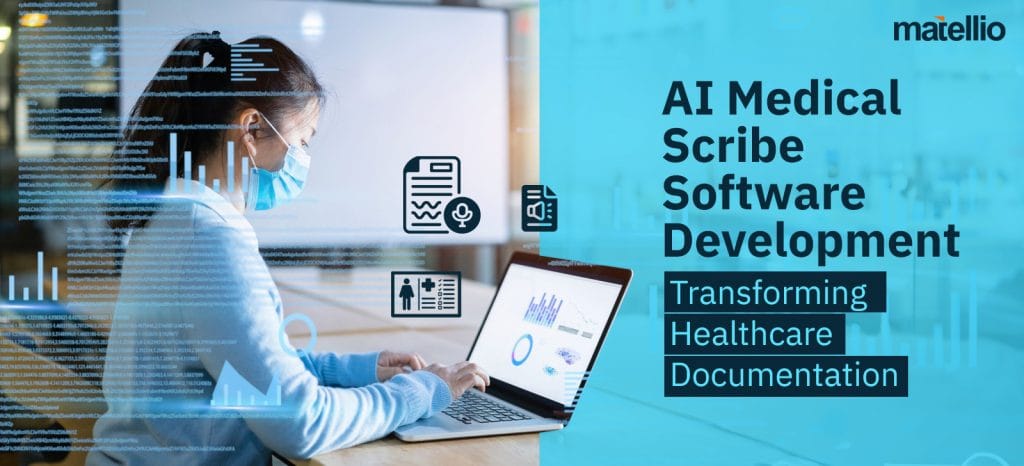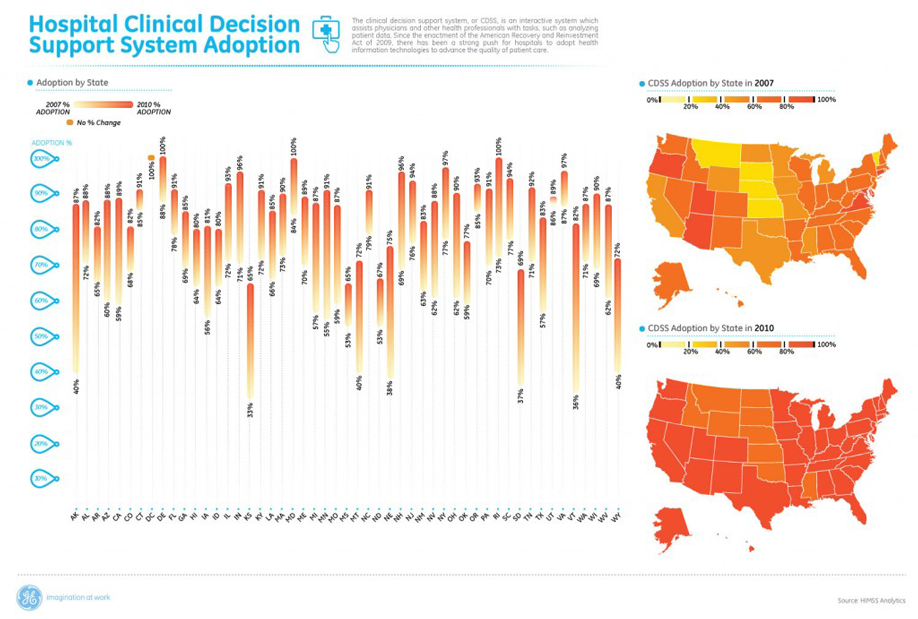The Benefits of Combining AI Medical Scribes with Clinical Decision Support

The Benefits of Combining AI Medical Scribes with Clinical Decision Support
Worldwide, healthcare systems have been experiencing a significant rise in patient volume and administrative workloads requiring more frequent and faster clinical decision making over the last several decades. Luckily, emerging technologies like artificial intelligence are offering solutions to these problems.
Studies have shown that integrating artificial intelligence in healthcare can improve diagnostic accuracy, enhances treatment selection, and supports clinical laboratory testing. Healthcare providers and organizations adopting these digital innovations are becoming increasingly aware and engaged with this new technology.
AI-powered medical scribes and Clinical Decision Support (CDS) systems are playing a vital role in reshaping clinical workflows and improving patient outcomes. As hospitals and clinics face the challenge of balancing operational efficiency with quality care, AI scribes and CDS tools provide intelligent, value-driven support to healthcare professionals.
Investing in innovative technological solutions is essential for the future of healthcare. It is no longer a luxury but a necessity. Understanding how AI medical scribes and CDS systems can transform clinical operations empowers hospitals and clinics to make informed investments that benefit both providers and patients in the long term.
The Power of Aligning AI Scribe and Clinical Decision Support

By combining two innovative technologies - AI scribes with AI CDS, healthcare organizations have the potential to experience a huge uptick in both operational efficiency and the quality of patient care. With AI scribes playing a pivotal role in clinical documentation, they help doctors and physicians save hours per day on documentation. On the other hand, AI CDS provides those same physicians with real-time recommendations that are based on the evidence, thereby enabling improved diagnosis accuracy. One study out of Department of General Medicine at Chiba University Hospital showed that those who used CDSS reportedly had better diagnosis accuracy than those who didn’t use it.
When AI Scribes are combined with AI CDS, combining organized data capture, with intelligent decision systems, there is a natural increase in the overall effectiveness of the clinical decision support algorithms. This alignment can help reduce the cognitive load of physicians while streamlining functionalities effectively. Allowing AI medical scribes taking care of the documentation and CDS systems to handle clinical decision guidance, clinicians can make quicker decisions, more accurate diagnosis, make fewer errors, and have better patient outcomes. Integrating AI scribes with AI CDS is undoubtedly the future of medicine.
Improves Speed and Accuracy of Clinical Decision-Making
By combining AI scribe and decision support system, a physician can make an informed decision on time. The CDS system provides precise recommendations that are driven by the data provided by patients, present guidelines, and predictive analytics. Pairing this system with an AI Scribe provides invaluable contextual data.
Scalability and Customization
Both AI scribe and AI CDS tools are scalable and can be easily customized to cater to the various unique requirements of the clinical field. Whether a small clinic or or a large hospital, the implementation costs are low to get started. They are designed in a way that can easily support various specialties, large volumes of patients, and documentation, and a host of other administrative tasks. These systems can also be customized to each healthcare organizations needs. Pricing models are also flexibile enough to accommodate different organizations depending on their resources. An added plus is the modular and scalable nature of both CDS and AI medical scribe enables them to expand as per the organizational growth and needs.
Consistent Quality Care
A significant advantage of integrating AI scribe and decision support is the potential to provide consistent and high-quality treatment across all providers. While CDS offers a guarantee that providers adhere to the same evidence-based rules, AI scribes provide documentation that is uniform, transparent, and organized. When both these technologies are combined, they standardize care in a meaningful and positive way, regardless of level of training of the practitioner. This establishes consistency, improves collaboration, minimizes errors, and ensures that each patient receives the best quality healthcare and treatment. The improved and standardized documentation of the patient records using AI Scribes also ensures useful documentation for further clinical use. In brief, this combination ensures a safe and efficient healthcare facility for every patient.

Why is Thoughtful Implementation and Training of CDS + Scribe Integration Necessary?
The adoption and integration of CDS and AI-powered medical scribes in the healthcare system is essential, but proper implementation and training is required. In order to maximize the benefits of these technologies, it is important for healthcare organizations and hospitals to take the necessary steps to implement them correctly. If the systems are integrated into the existing workflow without any efficient planning or proper user knowledge, the tools will likely be underutilized and will not deliver efficiency. This is why it is essential that these tools are brought into the real life clinical workflow by domain experts that are currently in practice.
DocAssistant is an integrated AI Scribe and CDS solution being built by practicing clinicians within the acute care space. Try it out today.
About the Author
Nathan Murray, M.D. Emergency Medicine - Founder of DocAssistant
Dr. Nathan Murray is an Emergency Medicine trained physician and the founder of DocAssistant. With years of frontline clinical experience, Dr. Murray is passionate about using AI to streamline medical documentation and enhance clinical decision making.


